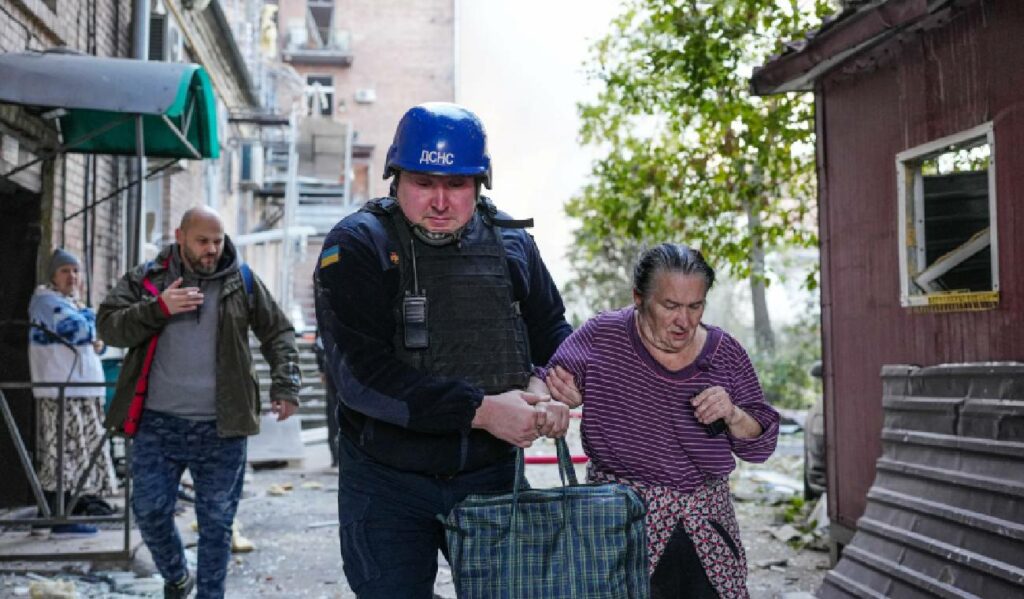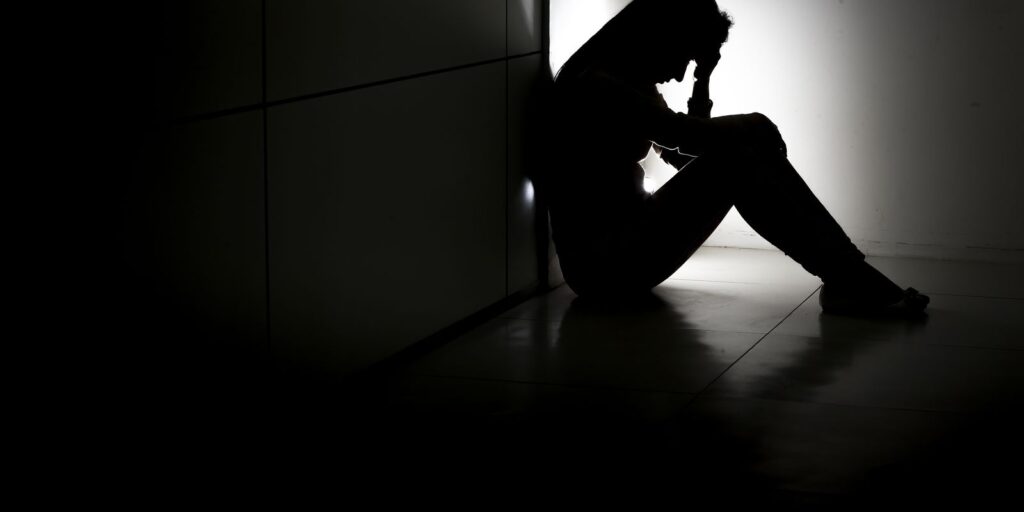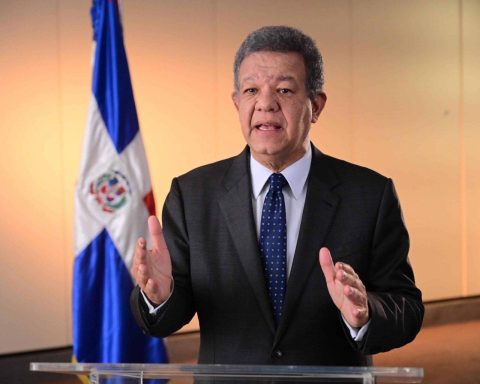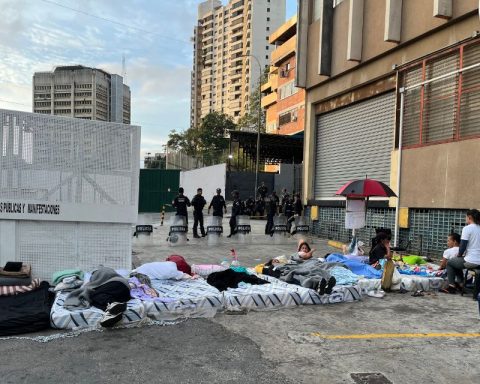Until Thursday, the Socialist Party (PS) was represented in the “Group of 8” talks by the PPD, through its president Natalia Piergentili, and by the Radical Party (PR), with deputy Tomás Lagomarsino.
The space was made up of four representatives of the ruling party, three from Chile Vamos and a DC, who met this week to try to reach an agreement that defines the bases and the mechanism for a new constituent process.
However, parliamentarians from the ruling party assure that there is a stalemate in the talks. “Every day I am more skeptical of reaching an agreement soon,” said PS deputy Marcelo Illabaca on Thursday in Radius Guideline. In response, the socialist president decided to join the talks from Friday, according to Vodanovic, because the “writing has not been finalized.”
Regarding the negotiations, the president of the PS has said that “the right cleverly returns to the issue of the borders and does not want to pronounce on the mechanism” and added that this group assures that the borders are “to give peace of mind to citizens, but in reality it is rather to give peace of mind to certain actors such as the Pension Fund Administrators (AFP)”.
– Do you think that with the discussion of the bases there is a risk that the negotiations will be trapped?
-From progressivism we were immediately available to point out respect for social rights as one of the borders, but Chile Vamos has insisted on the right to property and the use of water, and the inexpropriation of pension funds. Topics that not even in the current Constitution, of 1980, are enshrined. Insisting on putting them as borders is not seeking agreement. Because they know that for us this issue is not going to be settled now, not because we do not agree to discuss it, but rather that it must be discussed in the Convention or the body that results from it. We don’t want an early discussion.
-The right proposes stating that “Chile is a social state of rights and freedoms.” Why do the ruling party consider this wording problematic?
-The Social and Democratic State of Law, and it is law with a capital letter, has to do with the fact that we are for a State that has an emphasis on social benefits that until today have been commercialized. When the right changes the uppercase to a lowercase, adds the s, and adds freedoms -social and democratic state of rights and freedoms-, it is distorting the concept that we want to arrive at. Therefore, this is not a semantic or orthographic discussion, it is one of substance that must take place within the constituent body.
-Why hasn’t the Socialist Party had a representative in the “Group of 8” until now? Who informs you about the progress of the meetings?
-We agreed as Democratic Socialism that on this occasion the PPD and the PR went to these talks, understanding that it was a small group in charge of making some adjustments in order to have a draft. As this wording has not been finalized during several meetings, I am also attending now on behalf of the Socialist Party.
-Senator Rojo Edwards told El Mostrador that “the bases of Chile Vamos, our popular base, do not agree with many of the positions that their leaders are leading.” Do you think there are specific right-wing groups that are gaining ground?
-It is evident that right-wing populist parties have been gaining ground, not only in Chile, but also in the world. We have seen it with Bolsonaro in Brazil, with Belloni in Italy, before with Trump in the United States. The formula is to speak directly to the citizenry, form certain controversies, like the one we have seen from the Republican deputies this week. It has to do with attacking, with putting themes that are very representative for them, but that ultimately do not constitute civilizational or social advances. They come in defense of certain issues of value that I actually think stress a more democratic part of the right. The Republicans have said that they do not want a new Constitution, therefore, the withdrawal from the table does not surprise me in this context, but I do think it is unfortunate because finally the space for democratic discussion is Congress.
-Another knot in the constituent talks is the scope of the bicameral system. Does the PS want to leave the field open so that the future drafting body can make changes to the powers of both chambers?
-In a new institutional design, which we don’t know what it will be, we have to see what powers both chambers will have in relation to those that the Executive Power will eventually have. We cannot limit the constituent body to open a discussion about that. Currently in Chile we have a presidential regime, one with increased powers of the President that can be reviewed. And in correlation, the powers of the legislative chambers would also have to be reviewed.
-Is the PS to recognize the indigenous peoples as a people-nation?
-This discussion on Thursday I think was settled. It seems to me that it was President Guillermo Teillier (PC) who pointed out that the issue of plurinationality was over, and no one is insisting on that concept anymore. Regarding the indigenous peoples, who are called that in Convention 169, we are for their constitutional recognition, and that of their traditions, customs and languages. That is the position that I see more generalized. These are issues that I believe must be left to the constituent body. As a limit, it seems good to me to establish that plurinationality will not be incorporated, and then that this discussion takes place in the constituent body. We can also consign that the indigenous peoples will be recognized and that it remains as a base.
-There are those who see with concern the government’s mistakes every week. Some examples that are given are the repercussions of suspending the delivery of credentials of the Israeli ambassador, or putting on the table the issue of abortion without cause when there is no immediate plan by the government. What is believed to be the reason for this?
-The experience is acquired in the measure of the daily work of government. I don’t know if the issue of abortion is a stumbling block, because it is something that is on the government’s agenda. It doesn’t seem to me that you have to censor yourself either with the topics or with the designations.
-You are already a heavy part of the Government, you are the majority at the heart of decision-making, which is the political committee, versus the Broad Front that only has one representative, the Minister for Women, Orellana. Do you think they are taking a predominant role in driving Democratic Socialism?
-In the political committee half belongs to Democratic Socialism -PS, PPD, PL and PR- and the other to Approve Dignity -FA and PC-, therefore, here there is no numerical imbalance. I believe that everyone who is part of the political committee has significant political experience, in this way, there is no imbalance between the two coalitions. If there was before because obviously we were not incorporated with as much representation as Democratic Socialism. The necessary complementation that has been in the political committee has to be in all government instances. That is to say, on the second floor, in the different ministries. Because both coalitions are complementary and we want the government to be successful.
-What nuance has brought the entry of Tohá and Ana Lya Uriarte to the government?
I believe that another vision, complementary to that of Approve Dignidad, a transformative one like the government project, but also with the experience of having governed in coalition for many years.


















